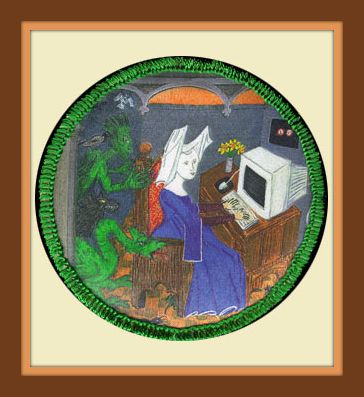
I just finished reading The Lost: A Search for Six of Six Million.
I reserved this book quite a while ago at the library, and then when I could finally check it out, I was given only two weeks, rather than the normal three, to read and return without incurring fines. This is because there are a lot of people who want to read it. The timing, of course, on when you finally get the book doesn't necessarily correspond to when you have time to read it, and until last Tuesday, I was preoccupied with The Awakening for my book group. As soon as I set that aside, I picked up Mendelsohn's book, and dug in. It was lengthy, coming in at over 500 pages, but I finished it late last night before the due date today. My next book is also due in two weeks (now a week and a half) so I know what I'll be reading next. No time to catch up on the New Yorker! All this an aside to the main feature. The book.
I loved this book. Ever since childhood, Mendelsohn has been collecting family stories and compiling charts and tables of family connections. Yet, very little was spoken of the story of what happened to Uncle Schmeil, his grandfather's brother, and his family-- Ester, Lorka, Frydka, Ruchele, and Bronia during World War II. Vague notions of death at the hands of Nazis have made it back to the extended family in Israel and in the US, but there are no definites. In the book, the author details his search to find them and give life to what happened to them during the Holocaust in Bolechow, their town in eastern Poland. He travels around the world to find and interview extraordinary and elderly Jewish survivors from Bolechow who are able to shed light on the details of what happened to these six members of his family. It reads like a detective novel, with incredible plot twists and turns, even to the last minute. The way in which the story unravels, bit by bit, is amazing--what seems like amazing luck and coincidence to find just the right person at just the right time provide a great deal of what Mendelsohn ultimately learns. The last trip he takes, returning to Bolechow, is gripping and moving. When the author sinks to the ground, overwhelmed by what he has learned, I, too, felt a rush of emotion for the finale of such an incredible and heart-rending quest.
Additionally, the author recounts the stories in Genesis--the creation, Cain and Abel, Noah, Abraham and Isaac, and Sodom and Gomorrah--in parallel with his own story, "highlighting eternal themes of origins and family, temptation and exile, brotherly betrayal, creation and annihilation." I found some great insights into these stories that are often bewildering.
He also includes many thoughts on the process of using fragile and subjective memories of many individuals to obtain History as it truly occurred. Ultimately, he concludes that the definitive version of the story of Uncle Schmeil and his family could not be obtained. In fact, it was remarkable that he could piece together what he did. He often reflected on how fortuitous it was to find these elderly Jews at the end of their lives and capture their memories before their seemingly imminent deaths. He also laments what he just missed, by not asking the right questions or finding the right people soon enough.
I love the way his book uses a personal family story to shed light on the larger historical context of the time. I find that for me, one of the best ways to understand history is through a personal lens. One family's story illuminates the larger issues and gives sense and personality to the historical details. Another of my favorite books that does this is Wild Swan, chronicling the 20th century in China through the lives of three generations of women.
Interestingly, the timing of reading this book corresponded with a surge in my own interest in my family's history. I have been poring over microfilm to locate Italian ancestors. I have been reading some histories of long gone Mormon pioneers and wondering about their families. That could be why I found his account so moving. I long for details on the lives of these vague women and men who have predated me and about whom I know so little.
Friday, March 16, 2007
The Lost
Labels:
Geneology,
Off the Stacks
Subscribe to:
Post Comments (Atom)

No comments:
Post a Comment